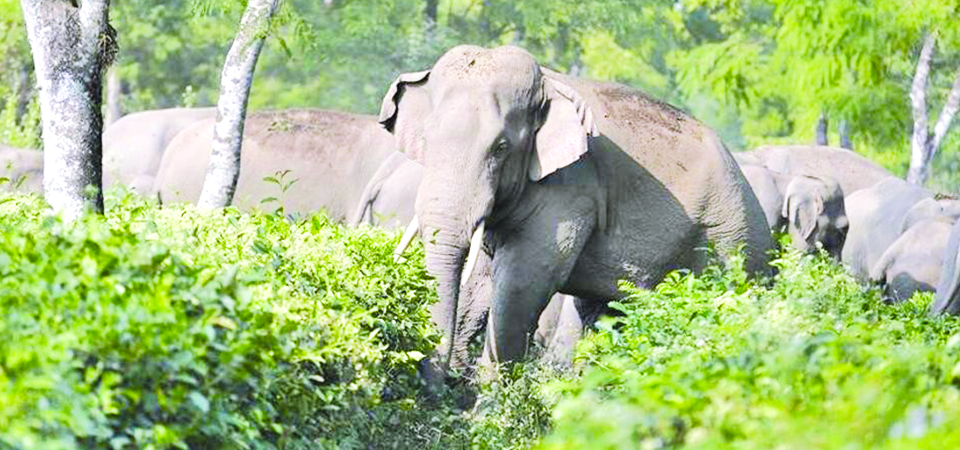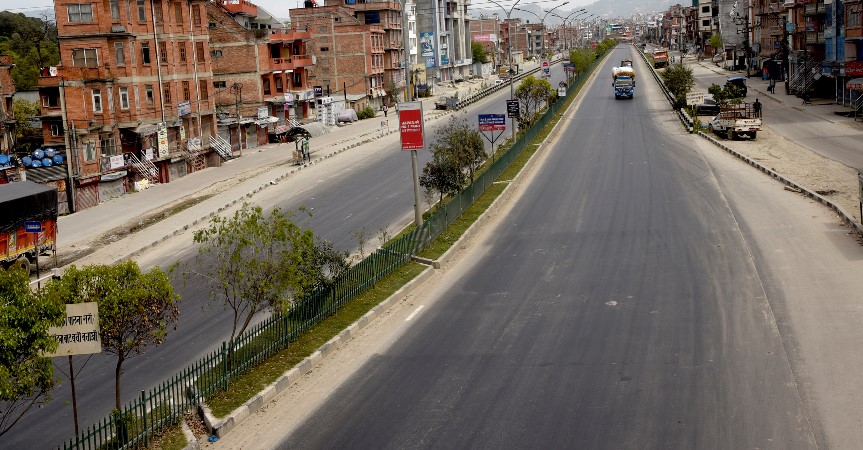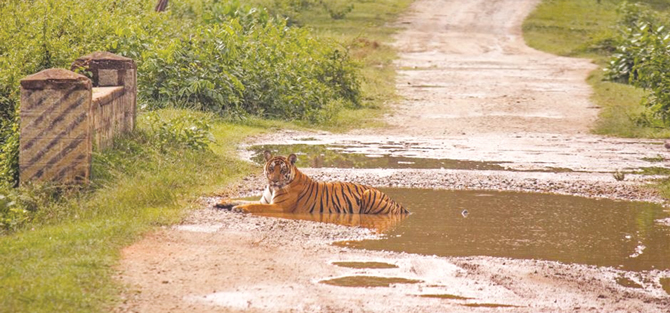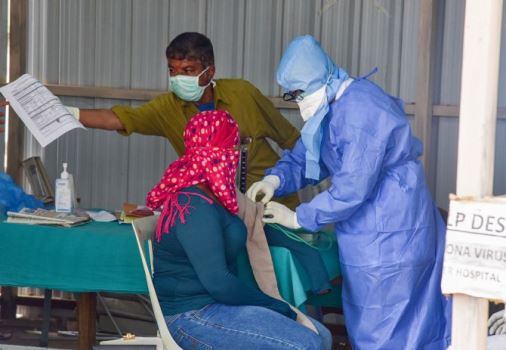Premature death of elephant raises concerns at CNP

By Indira Aryal
Kathmandu, Feb. 13: At a time when the death of one endangered one-horned rhino after another in Chitwan National Park (CNP) has raised concerns among wildlife enthusiasts and conservationists alike, the recent death of a healthy elephant has taken those concerns to the new level.
An elephant named Shankar Prasad, 45, which was deployed for security at Lamichaur Post inside the park, died on Tuesday because of stomach-related problems, according to Lokendra Adhikari, Information Officer at the CNP. He had been ill for a while.
The post mortem carried out the next day revealed that he died of Volvulus, a medical term that refers to the abnormal twisting of a part of the large or small intestine, according to Dr. Bijaya Shrestha, veterinarian at CNP.
Volvulus may lead to bowel obstruction, which can result in severe complications. It requires prompt diagnosis and treatment to prevent the medical condition from worsening.
He was cremated in accordance with Hindu tradition, he said.
The demise of Shankhar Prasad is the fifth case of elephant deaths at the CNP in the current fiscal year. Deaths of Dipendra Gaj, 55, Rupakali, 74, Sundarmala, 75, and an 18-day-old calf were recorded this year.
According to Dr. Shrestha, Rupakali and Sundarmala died of old age. But Dipendra Gaj and the calf died of infection.
After the post mortem, Dipendra Gaj’s cause of death was found to be Tuberculosis, he said.
Tuberculosis is a common infection among domesticated elephants, he added. In 2016, a large number of elephants at CNP were infected with Tuberculosis, of which a few succumbed to it.
Wildlife expert Dr. Dinesh Neupane, Programme Director at
Resources Himalaya Foundation, said that Tuberculosis was very common among domesticated elephants worldwide. “It is good to use elephants for patrolling and for security, but they should be provided with adequate facilities as any human tourist. There should be frequent check-ups,” said Dr. Neupane, who has done a doctorate on Elephants in Nepal.
Elephants have significantly contributed towards promotion of tourism in Nepal, but there has been no research on their health issues and their diets, he said.
According to CNP, at least 25 elephants have died at the CNP alone since 2002. Of them, 15 died of tuberculosis, which was first seen in that year. Testing for Tuberculosis on elephants is a difficult process, so their diagnosis is time coming.
“This time CNP is planning to test Tuberculosis on domesticated elephants but all the officials of the park are focused on controlling poaching of the one-horned rhino,” Dr. Shrestha said.
“Testing Tuberculosis on elephants takes a lot of resources, both time and money. If they test positive, it is hard to feed them medicine as they lose appetite. “Medicines are prescribed like human beings but they weigh anywhere between 3,000 kilograms (kgs) and 5,000 kgs, so the medicines should also be given as per their weight,” Shrestha said. The medication period lasts for a year, he added.
If the elephant becomes sick once, it’s hard for them to recover.
There are currently 56 domesticated elephants in CNP and they have been used for park security and patrolling.
Recent News

Do not make expressions casting dout on election: EC
14 Apr, 2022
CM Bhatta says may New Year 2079 BS inspire positive thinking
14 Apr, 2022
Three new cases, 44 recoveries in 24 hours
14 Apr, 2022
689 climbers of 84 teams so far acquire permits for climbing various peaks this spring season
14 Apr, 2022
How the rising cost of living crisis is impacting Nepal
14 Apr, 2022
US military confirms an interstellar meteor collided with Earth
14 Apr, 2022
Valneva Covid vaccine approved for use in UK
14 Apr, 2022
Chair Prachanda highlights need of unity among Maoist, Communist forces
14 Apr, 2022
Ranbir Kapoor and Alia Bhatt: Bollywood toasts star couple on wedding
14 Apr, 2022
President Bhandari confers decorations (Photo Feature)
14 Apr, 2022









